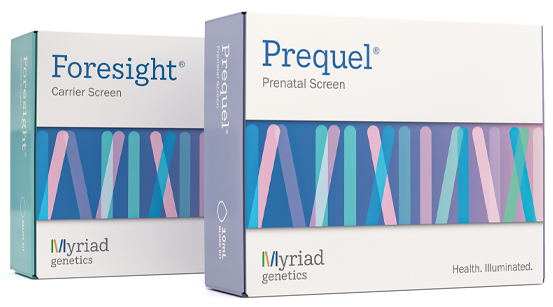

Getting screened
Simply being here and being curious about your baby’s health is a big first step. The next is finding out which screen is right for you.
What is the screening process?
Whether you’re thinking about having a baby or already expecting, it all starts with a conversation with your provider about your testing goals and concerns.

Talk to your provider
Share any known history of genetic conditions. Ask if the genetics lab they’re using offers free, on-demand consultations with board-certified genetic counselors.

Determine which screen is right for you
This can be based on many factors, such as whether you’re pregnant and if so, how many weeks. For carrier screening, ancestry may be a consideration. And for a cfDNA screen, BMI can also be a factor.

Screening day
You got this: One quick blood draw and it’s done! Don’t be afraid to ask questions and feel good that you’re doing something positive for you and your baby.

Review your results
You should get most results within two weeks. The majority show no sign of risk. If yours does, the lab may offer free, on-demand consultations with board-certified genetic counselors.

What to do with your results
Regardless of the outcome, remember that learning more sooner is empowering. It gives you time to talk to specialists, confirm with diagnostic testing, plan, seek counsel, and breathe.

How to get a screen
For gender testing as early as six weeks
For carrier screening before or during early pregnancy
or
For cell-free DNA screening as early as eight weeks
or

Learn more about prenatal screening options
For every stage of the pregnancy journey, our affordable, safe, and reliable prenatal screening options help guide families.
Download the guide: what to ask your healthcare provider
The next step in knowing more about prenatal screening is being prepared to make the most of your conversations with your healthcare provider.
